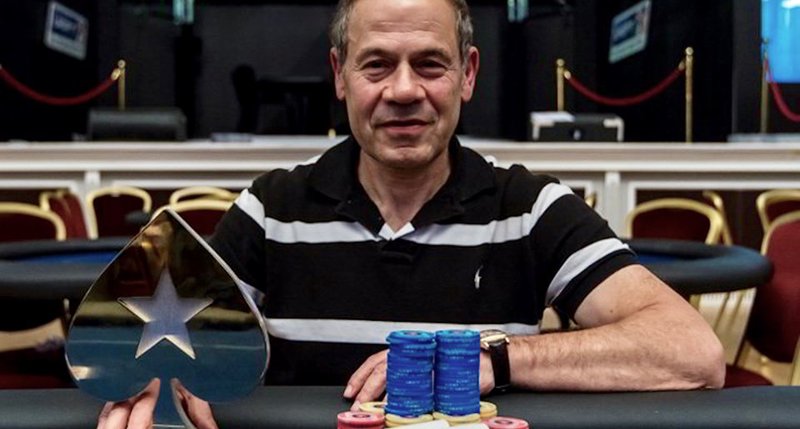






PokerStars Founder Isai Scheinberg Surrenders To U.S. Authorities73-Year-Old Was Released On $1 Million Bail After Pleading Not Guilty To Bank Fraud, Money Laundering And Illegal Gambling Charges |
|
|

Nearly nine years after being charged with bank fraud, money laundering and illegal gambling, PokerStars founder Isai Scheinberg surrendered to U.S. officials.
The 73-year-old left Switzerland and landed in New York on January 17, where he was met by federal agents that took him into custody. That same day, he pleaded not guilty to all three charges and was released on $1 million bail, according to a report from Forbes.
The charges stem from the fallout of what the poker world has dubbed “Black Friday.” In 2011, the U.S. government seized the domain names and funds of the biggest online poker providers. Following those charges, it was revealed that PokerStars’ main competitor, Full Tilt Poker, was insolvent and unable to repay its players.
Although Scheinberg worked with the U.S. government to facilitate a deal that would allow his company to acquire Full Tilt and payback many American players, Scheinberg stayed outside U.S. borders and continued to evade U.S. law enforcement.
During a trip made by Scheinberg to Switzerland a few months ago, U.S. authorities began extradition proceedings with the Swiss government. Scheinberg initially resisted the process, but after some negotiations, he decided to travel voluntarily to the U.S. and face the charges.
While he did decide to surrender, it is unlikely that this will lead to any prison time. According to Forbes, federal prosecutor Olga Zverovich told a hearing that the government and Scheinberg have been discussing the issue for a while.
“We have an agreement in principle on the basic terms,” said Zverovich.
Scheinberg founded PokerStars in 2001 and continued to operate the business in the United States following the 2006 passing of the Unlawful Internet Gaming Enforcement Act.
Following the 2011 charges, Scheinberg’s son, Mark, took over the company. Three years later, he sold it to Amaya for $4.9 billion.
Two years later, PokerStars partially re-entered the U.S. market when online poker was legalized in New Jersey. The company is currently the only operator in Pennsylvania, which legalized online poker in 2017 but didn’t launch until two years later.
Photo Credit: Danny Maxwell/PokerStars Blog
